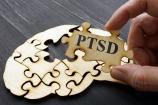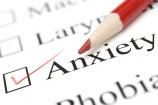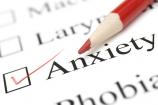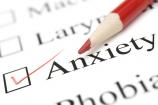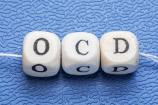Videos and Podcasts
Throstur Bjorgvinsson, PhD, ABPP, gives an example of Exposure with Response Prevention, creating a hierarchy, doing exposures, and more. Presented in partnership with Anxiety and Depression Association of American (ADAA) and the International OCD Foundation (IOCDF).
Presented in…
Throstur Bjorgvinsson, PhD, ABPP, explains that cognitive behavioral therapy, or CBT, is a form of psychotherapy. It is effective in treating many different disorders, though CBT is done differently for different disorders.
Presented in partnership with Anxiety and Depression…
ADAA Member Jonathan Grayson, PhD, discusses that there is treatment available for OCD. Both the American Psychological Association and the American Psychiatric Association both agree that ERP is the best treatment for OCD. If you are doing CBT, it's best to make sure that it's specifically ERP…
ADAA Member Elizabeth McIngvale, PhD provides her expertise to help you learn the difference between Cognitive Therapy (CT), Cognitive Behavioral Therapy (CBT), and Exposure and Response Prevention (ERP). Discover the best treatment option for Obsessive Compulsive Disorder (OCD).
…
ADAA Member Elizabeth McIngvale, PhD talks about intrusive thoughts related to Obsessive-Compulsive Disorder (OCD) and Exposure with Response Prevention (ERP) treatment.
Presented in partnership with the International OCD Foundation (IOCDF).
For more resources visit:…
Jonathan S. Abramowitz, PhD, ABPP explains what obsessive-compulsive disorder (OCD) is and what it is not. He goes over mental health stigma and how OCD can take over your life.
Presented in partnership with the International OCD Foundation (IOCDF).
For more resources…
Learn the differences between Obsessive Compulsive Disorder (OCD) verse Obsessive-Compulsive Personality Disorder (OCPD) from Eric Storch, PhD.
Presented in partnership with the International OCD Foundation (IOCDF).
For more resources, IOCDF.org …
ADAA member Elizabeth McIngvale, PhD, LCSW talks about her personal experience with living with OCD. When you are in the middle of a battle or a big trigger, it can seem hopeless but your OCD does not define you and OCD treatment makes that possible for all of us.
Presented in…
PTSD is an illness that people may develop months after experiencing or witnessing a life-threatening event, including a terrorist attack like 9/11; combat; earthquake, tsunami, hurricane, tornado, or other natural disaster; serious auto or plane accidents; personal assault or abuse; or the…
I have always suffered with Generalized Anxiety Disorder, but really hit rock bottom about 5 years ago after my hysterectomy. About 18 years ago after the birth of my first child I suffered some complications. To this day, I can replay every moment - this is when the doctors diagnosed me…
Happy Mental Health Awareness Month! My name is Antonio Liranzo, I am an actor and author. I believe that breaking the stigma is so important and it is ok to not be ok.
In the past year, I have been on my own journey with my anxiety...
Four evidence-based videos featuring ADAA member Melanie Van Dyke, PhD explaining: Evidence-based Therapy for Adolescent Depression - Cognitive Behavioral Therapy - Selecting a CBT Therapist - How to Know if Therapy is Working
This helpful video discusses what a research study is and how you can get involved. The video was produced by ResearchMatch.org.
ResearchMatch brings together people who are trying to find research studies and clinical trials, and researchers who are looking for volunteers. Research is a…
What’s the difference between stress and anxiety? Stress can come from any situation or thought that makes you feel frustrated, angry, nervous, worried, or even anxious. Anxiety is a reaction to the stress, a feeling of apprehension or fear.
//Discover when you should become concerned that you might have an anxiety disorder.
//Learn about changes you can make to your lifestyle to reduce stress and anxiety.
//Psychologist Dr. Douglas Mennin discusses how to understand anxiety disorders.
The typical age of onset is 13 years old, but children younger than 8 or 9 can also suffer. Symptoms may be so extreme that they disrupt daily life. Children, adolescents, and teens with this disorder may have few or no friends. They may not participate in class or play at recess.
//…Dr. Elspeth Bell, a licensed psychologist at the Behavior Therapy Center of Greater Washington, speaks on behalf of the Anxiety and Depression Association of America. She describes the mental illness OCD, which stands for obsessive-compulsive disorder. OCD is a serious and often debilitating…
Adults with social anxiety disorder often feel alone and ashamed, and they may have few or no social or romantic relationships. People may have more than one anxiety disorder, as well as depression. Seek the help of a qualified health professional if you feel your anxieties are disrupting your…








